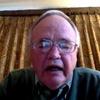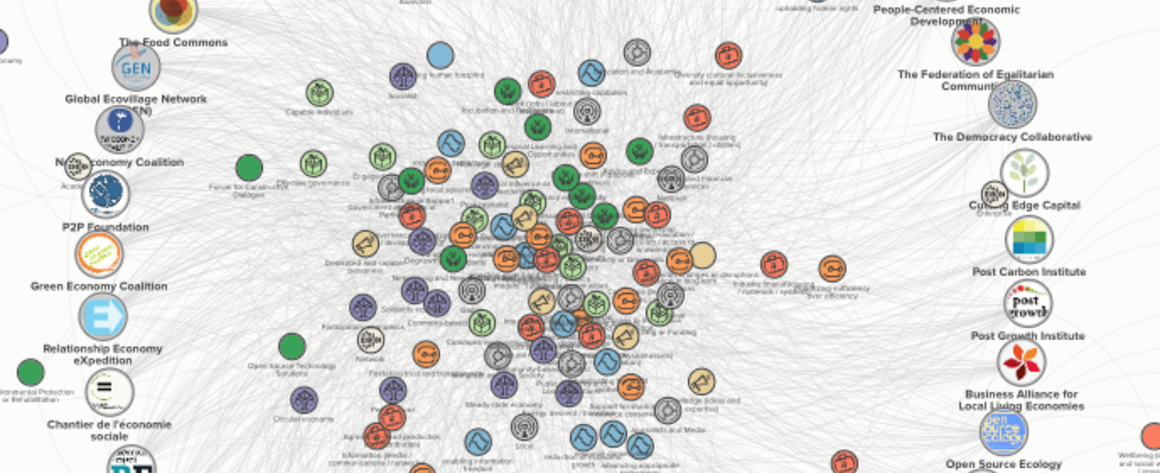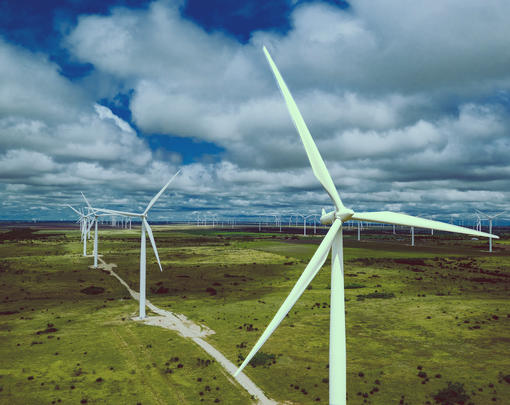Our webinar, “Mapping the Next System,” was a platform for robust discussion on the linkages and intersections of the movement for a New Economy. Below you will find the panelists as well as a link to the slides from the presentation.
The inability of traditional politics and policies to address fundamental challenges has fueled an extraordinary amount of experimentation, generating increasing numbers of sophisticated and thoughtful initiatives that build from the bottom and begin to suggest new possibilities for addressing deep social, economic and ecological problems. Thus we encounter the caring economy, the sharing economy, the provisioning economy, the restorative economy, the regenerative economy, the sustaining economy, the collaborative economy, the solidarity economy, the steady-state economy, the gift economy, the resilient economy, the participatory economy, the new economy, and the many, many organizations engaged in related activities.
There are calls for a Great and Just Transition, or for reclamation of the Commons. Many of these approaches already have significant constituencies and work underway. Creative thinking by researchers and engaged scholars is also contributing to the ferment. Although they vary widely in emphases and approaches, there is a good deal of commonality. These movements seek an economy that gives true priority to people, place, and planet.
Taking the next step in collective development will require better information on the array of organizations and initiatives active in this space as well as efforts to identify potential areas of cooperation and collaboration. Beyond that loom questions of scale and replicability. The Real Economy Lab (REL) has been surveying the landscape and identifying the linkages and is seeking to provide an interactive platform where the cumulative knowledge, aims, and resources of these movements can be drawn together in order to seek common ground and drive coordinated action.
In this webinar REL presents their work to date alongside a panel of leading thinkers and practitioners who discuss these issues. We hear about the work of REL as a connector of change makers in the next economy space, working to raise awareness and understanding of new economy theory and practice and help connect the thinkers and doers in this world for collaboration and movement building. REL explains its theory of change and unique role in this evolving new economy ecosystem and walks us through one of their core tools, the mindmapping of the next economy ecosystem.
We also discuss questions that explore the value of mapping the next system:
Problem statement – What are the leading / recurring challenges in organizing more coherent effort and coalition building within and across this movement? What are the obstacles / challenges that crop up?
Underlying causes - What do we have in common? What principles, values and alternative economic paradigms motivate our actions, and where are we ultimately aligned? How do we talk about this more openly?
Solution framing – How can people and organizations build on one another’s efforts and collaboratively work towards a more capable, credible, and coherent movement for systemic change? What are leading theories of change?
Solution space – Where are we seeing inspiring or illustrative success stories and convergences underway in the movement? How can we measure progress and promote positive outcomes?
Improving the odds – How might the work of REL better support practitioners and thinkers in the next economy world? What tools, data, or support are missing from the system we all work in?
Featuring
Moderator: Gus Speth, Co-chair of the Next System Project
Panelists
- Michel Bauwens, P2P Foundation
- Ferananda Ibarra, VillageLab / Metacurrency Project
- Michelle Mascarenhas Swan, Movement Generation
- Jules Peck, Real Economy Lab
- Ed Whitfield, Fund for Democratic Communities
Click Here to view the accompanying slides from Jules Peck of the New Economy Lab




